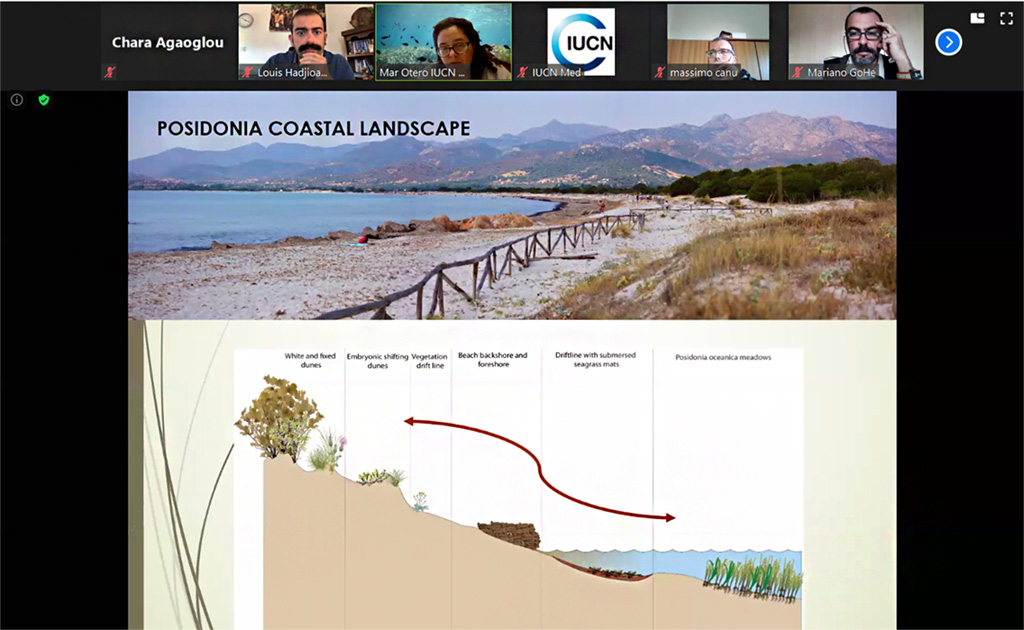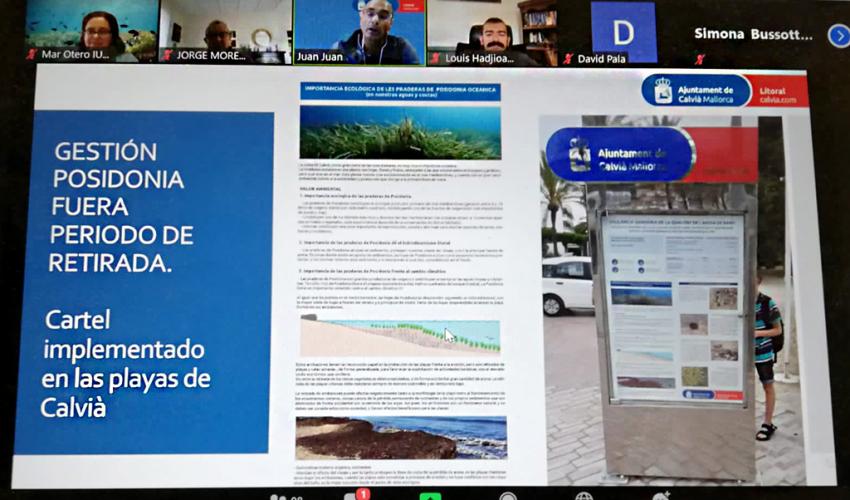Over 120 experts from 10 Mediterranean countries participate in POSBEMED 2 monitoring workshop
Organised by IUCN-Med, Enalia Physis Environmental Research Centre, Natura Jadera and IAS-CNR, this online capacity building workshop aimed to highlight the value of natural Mediterranean landscaped beaches with Posidonia oceanica. From 10th to 11th November 2020, coastal managers, professionals working in protected areas, representatives from public administrations, researchers and other relevant organizations learned about detailed and cost-effective methods for monitoring these environments, together with examples of successful monitoring from around the Mediterranean region.

Photo: IUCN
A growing interest in managing Posidonia beaches sustainably
Under the title “Surveying methods for the sustainable development of Mediterranean beaches with Posidonia oceanica”, this workshop stressed the importance of gathering information for different management approaches. Moreover, it allowed participants from across a wide range of municipalities, regions and protected areas to share cross-sectorial experiences, each with individual characteristics but with the common aim of implementing more sustainable management methods.
Presentations were held in English, Spanish and French by regional experts from across the Mediterranean, including Provence-Alpes-Côte d’Azur in France, MPA Capo Caccia - Isola Piana in Sardinia and the municipality of Calvià in Mallorca offered interesting insights into key aspects of monitoring Posidonia meadows, tools for the morphological and ecological monitoring of beach-dune systems, erosion surveys and how to collect climatic information in monitoring.
 Photo: IUCN
Photo: IUCN
During the second day of the workshop, participants had the opportunity to take part in interactive working groups organized by country (Spain, Italy and Croatia) and region (Greece/Cyprus) to discuss and share experiences on technical, sectorial and legislative challenges related to monitoring beaches with Posidonia banquettes. Each working group was facilitated by experts from POSBEMED2 project partners and experiences across working groups were shared in a final open session.
An online workshop with simultaneous interpretation into 5 languages
Although the main working language of the workshop was English, simultaneous interpretation was provided for five Mediterranean languages: Croatian, French, Greek, Italian and Spanish. Communication material was prepared in six languages and shared on the POSBEMED2 project website and disseminated online by project partners.
Overall, this workshop generated a high level of interest among Mediterranean coastal management bodies, researchers and conservation organizations, as shown by the nearly 200 inquiries received. Due to the scope of the workshop, priority was given to stakeholders currently involved in the management of these beaches. Originally planned as an onsite training, the event had to be restructured in the context of the COVID-19 pandemic and was ultimately held online.
Workshop organised by IUCN Centre for Mediterranean Cooperation, Enalia Physis Environmental Research Centre, the Institute of Antropic Impacts and Sustainability in Marine Environment – National Research Council (IAS-CNR) and Natura-Jadera Public Institution for the Management of Protected Areas in the County of Zadar in the framework of POSBEMED 2 - Governance & management of Posidonia beach- dune systems across the Mediterranean.
For further enquiries, please contact María del Mar Otero.
 Photo: Interreg MED Programme
Photo: Interreg MED Programme



